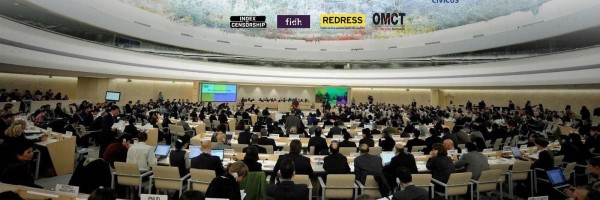A trio of human rights organisations today released a new briefing that looks to highlight the threats that the United Arab Emirates (UAE) poses to the aims of the climate justice movement in advance of the country’s hosting of COP28.
FairSquare, the Emirates Detainees Advocacy Centre and ALQST for Human Rights have co-published “Well of Fear: extraction and autocracy in the UAE” to challenge the UAE’s public relations campaign ahead of COP28, the United Nations Climate Change Conference, which starts on 30 November at the Expo City, Dubai.
The brief sets the UAE’s grim human rights crackdown of the past decade in the context of the country’s social contract, which expects citizens to demonstrate absolute political quiescence in return for a share in the benefits of continued fossil fuel extraction. On 1 September, the Centre for Climate Reporting and the New York Times reported leaked audio of conversations between UAE and COP28 officials in which they discussed plans to “counter” and “minimise” criticism of the country’s human rights abuses.
“COP participants need to be alert to the UAE’s PR tricks. Meaningful steps to stem global demand for fossil fuels will present a real threat to the power of its UAE’s ruling family, and they will resist them with every measure at their disposal,” said James Lynch, co-director of FairSquare.
The UAE has already paid millions of dollars to western public relations firms in order to present itself as an ally of climate justice and a champion for the demands of the global south, while advancing dangerous arguments questioning whether the world is “ready” for the phasing out of fossil fuels, and rapidly expanding its own domestic production of oil and gas. Emirati citizens have no ability to challenge any of these policies.
“There is literally no-one inside the UAE that can speak up freely to criticise the state’s policy on oil or climate change. Anyone who tried to do so would find themselves rapidly silenced or imprisoned,” said Hamad al-Shamsi, Executive Director of the Emirates Detainees Advocacy Centre.
The briefing draws on a wide range of highly-credible sources to demonstrate not only that the UAE is a serial and systematic violator of the most fundamental human rights, but that its domestic repression, whether delivered via torture and disappearances or one of the most sophisticated electronic surveillance systems on the planet, is contingent on the aggressive extraction of fossil fuels. It highlights individual cases of Emiratis and foreign nationals who have been viciously targeted by the state over the past decade, including Ahmed Mansour, Mohamed al-Roken, and Nasser bin Ghaith.
“There is simply no doubt that continued oil and gas exports, which account for around 90% of government revenue, help to fuel the UAE’s intense repression," said Julia Legner, Executive Director at ALQST for Human Rights.
A second briefing, which examines how oil and gas revenues have enabled the UAE’s ruinous foreign policy will be released later in September.




